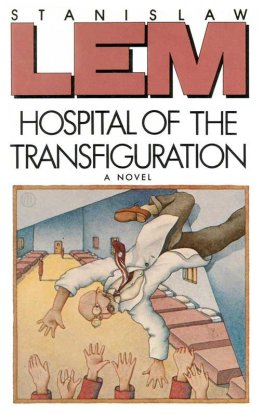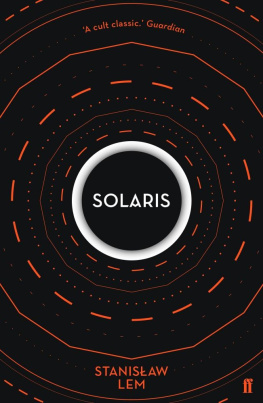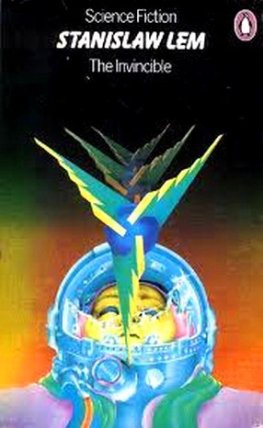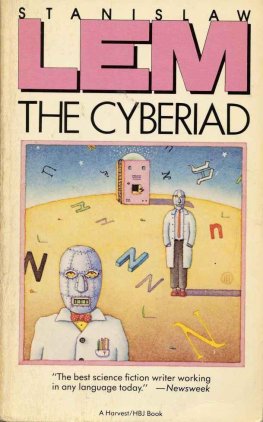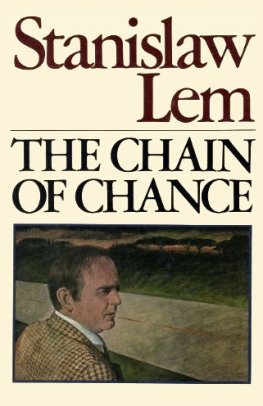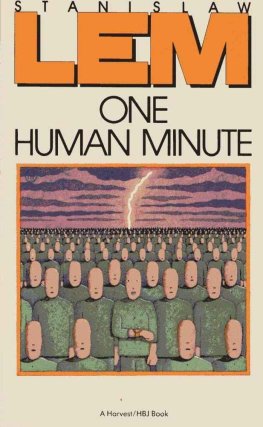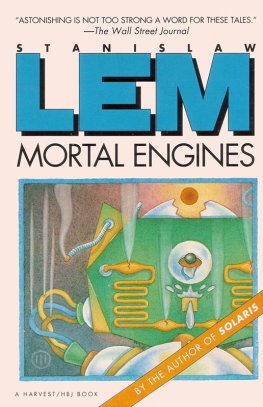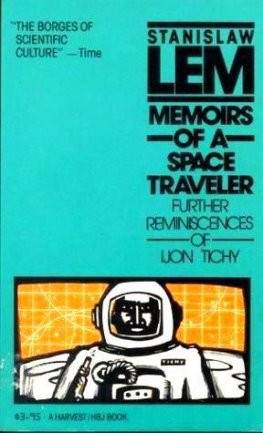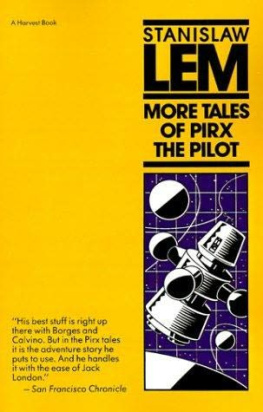Stanislaw Lem - The Futurological Congress
Here you can read online Stanislaw Lem - The Futurological Congress full text of the book (entire story) in english for free. Download pdf and epub, get meaning, cover and reviews about this ebook. genre: Science fiction. Description of the work, (preface) as well as reviews are available. Best literature library LitArk.com created for fans of good reading and offers a wide selection of genres:
Romance novel
Science fiction
Adventure
Detective
Science
History
Home and family
Prose
Art
Politics
Computer
Non-fiction
Religion
Business
Children
Humor
Choose a favorite category and find really read worthwhile books. Enjoy immersion in the world of imagination, feel the emotions of the characters or learn something new for yourself, make an fascinating discovery.

- Book:The Futurological Congress
- Author:
- Genre:
- Rating:3 / 5
- Favourites:Add to favourites
- Your mark:
- 60
- 1
- 2
- 3
- 4
- 5
The Futurological Congress: summary, description and annotation
We offer to read an annotation, description, summary or preface (depends on what the author of the book "The Futurological Congress" wrote himself). If you haven't found the necessary information about the book — write in the comments, we will try to find it.
The Futurological Congress — read online for free the complete book (whole text) full work
Below is the text of the book, divided by pages. System saving the place of the last page read, allows you to conveniently read the book "The Futurological Congress" online for free, without having to search again every time where you left off. Put a bookmark, and you can go to the page where you finished reading at any time.
Font size:
Interval:
Bookmark:
THE FUTUROLOGICAL CONGRESS
Stanislaw Lem
(from the memoirs of Ijon Tichy)
translated from the Polish by Michael Kandel
The Eighth World Futurological Congress was held in Costa Rica. To tell the truth, I never would have gone to Nounas if it hadn't been for Professor Tarantoga, who gave me clearly to understand that this was expected of me. He also said-pointedly-that space travel nowadays was an escape from the problems of Earth. That is, one took off for the stars in the hope that the worst would happen and be done with in one's absence. And indeed I couldn't deny that more than once I had peered anxiously out the porthole-especially when returning from a long voyage-to see whether or not our planet resembled a burnt potato. So I didn't argue the point with Tarantoga, but only remarked that, really, I wasn't much of an expert on futurology. His reply was that hardly anyone knows a thing about pumping, and yet we don't stand idly by when we hear the cry of "Man the pumps!"
The directors of the Futurological Association had chosen Costa Rica to be the site of their annual meeting, which this year was to deal exclusively with the population explosion and possible methods of keeping it in check. Costa Rica presently boasts the highest rate of demographic growth in the world; presumably the force of that reality alone was to help spur our deliberations to some successful conclusion. Though there were cynics who observed that only the new Hilton in Nounas had vacancies enough to accommodate all the futurologists, not to mention twice again as many reporters. Inasmuch as this hotel was completely demolished in the course of our conference, I can't be accused of making a plug when I say that the place was absolutely first-rate. These words have particular weight, coming from a confirmed sybarite; for indeed, it was only a sense of duty that had driven me to forsake the comforts of home for the travail of outer space.
The Costa Rica Hilton soared one hundred and six floors upward from its flat, four-story base. On the roof of this lower structure were tennis courts, swimming pools, solariums, racetracks, merry-go-rounds (which simultaneously served as roulette wheels), and shooting galleries where you could fire at absolutely anyone you liked-in effigy-provided you put in your order twenty-four hours in advance, and there were concert amphitheaters equipped with tear gas sprinklers in case the audience got out of hand. I was given a room on the hundredth floor; from it I could see only the top of the bluish brown cloud of smog that coiled about the city. Some of the hotel furnishings puzzled me-the ten-foot crowbar propped up in a corner of the jade and jasper bathroom, for example, or the khaki camouflage cape in the closet, or the sack of hardtack under the bed. Over the tub, next to the towels, hung an enormous spool of standard Alpine rope, and on the door was a card which I first noticed when I went to triple-lock the super-yale. It read: "This Room Guaranteed BOMB-FREE. From the Management."
It is common knowledge that there are two kinds of scholar these days: the stationary and the peripatetic. The stationaries pursue their studies in the traditional way, while their restless colleagues participate in every sort of international seminar and symposium imaginable. The scholar of this second type may be readily identified: in his lapel he wears a card bearing his name, rank and home university, in his pocket sticks a flight schedule of arrivals and departures, and the buckle on his belt-as well as the snaps on his briefcase-are plastic, never metal, so as not to trigger unnecessarily the alarms of the airport scanners that search boarding passengers for weapons. Our peripatetic scholar keeps up with the literature of his field by studying in buses, waiting rooms, planes and hotel bars. Since I was-naturally enough-unacquainted with many of the recent customs of Earth, I set off alarms in the airports of Bangkok, Athens and Costa Rica itself, having six amalgam fillings in my mouth. These I was planning to replace with porcelain in Nounas, but the events that followed so unexpectedly made that quite impossible. As for the Alpine rope, the crowbar, the hardtack and the camouflage cape, one of the members of the American delegation of futurologists patiently explained to me that today's hotels take safety precautions unknown in earlier times. Each of the above items, when included in the room, significantly increases the life expectancy of the occupant. How foolish it was of me, not to have taken those words more seriously!
The sessions were scheduled to begin in the afternoon of the first day, and that morning we all received complete programs of the conference; the materials were handsomely printed up, elegantly bound, with numerous charts and illustrations. I was particularly intrigued by a booklet of embossed sky-blue coupons, each stamped: "Good for One Intercourse."
Present-day scientific conventions, obviously, also suffer from the population explosion. Since the number of futurologists grows in proportion to the increase in magnitude of all humanity, their meetings are marked by crowds and confusion. The oral presentation of papers is quite out of the question; these have to be read in advance. Though there wasn't time for reading anything that morning-the Management treated us all to free drinks. This little ceremony took place without incident, barring the fact that a few rotten tomatoes were thrown at the United States contingent. I was sipping my Martini when I learned from Jim Stantor, a well-known UPI reporter, that a consul and a grade-three attach of the American Embassy in Costa Rica had been kidnapped at dawn. The abductors were demanding the release of all political prisoners in exchange for the diplomats. To show they meant business, these extremists had already delivered individual teeth of their hostages to the Embassy and various government offices, promising an anatomical escalation. Still, this contretemps did not mar the cordial atmosphere of our morning get-together. The United States ambassador himself was there, and gave a short speech on the need for international cooperation-short, as he was surrounded by six muscular plainclothesmen who kept their guns trained on us all the time. I was rather disconcerted by this, especially when the dark-skinned delegate from India standing next to me had to wipe his nose and reached for the handkerchief in his back pocket. The official spokesman for the Futurological Association assured me afterwards that the measures taken had been both necessary and humane. Bodyguards now employ weapons of high caliber and low penetration, the kind security agents carry on board passenger flights in order that innocent bystanders not be harmed. In the old days it often happened that the bullet which felled the would-be assassin would subsequently pass through five or even six persons who, though minding their own business, were standing directly behind him. Still, the sight of a man at your side crumpling to the floor under heavy fire is not among the most pleasant, even if it is the result of a simple misunderstanding, which ends with an exchange of diplomatic notes and official apologies.
But rather than attempt to settle the thorny question of humanitarian ballistics, perhaps I ought to explain why I was unable, all that day, to familiarize myself with the conference materials. So then, after hurriedly changing my blood-spattered shirt, I went to the hotel bar for breakfast, which usually I do not do. My custom is to eat a soft-boiled egg in the morning, but the hotel hasn't yet been built where you can have one sent up to your room that isn't revoltingly cold. This is due, no doubt, to the continually expanding size of metropolitan hotels. If a mile and a half separates the kitchen from your room, nothing will keep that yolk warm. As far as I know, the Hilton experts did study the problem; they came to the conclusion that the only solution would be special dumbwaiters moving at supersonic speeds, but obviously sonic booms in an enclosed area would burst everyone's eardrums. Of course you could always have the automatic cook send the eggs up raw and the automatic bellhop soft-boil them right in your room, except that that would eventually lead to people coming in and out with their own chicken coops. And thus I headed for the bar.
Font size:
Interval:
Bookmark:
Similar books «The Futurological Congress»
Look at similar books to The Futurological Congress. We have selected literature similar in name and meaning in the hope of providing readers with more options to find new, interesting, not yet read works.
Discussion, reviews of the book The Futurological Congress and just readers' own opinions. Leave your comments, write what you think about the work, its meaning or the main characters. Specify what exactly you liked and what you didn't like, and why you think so.



